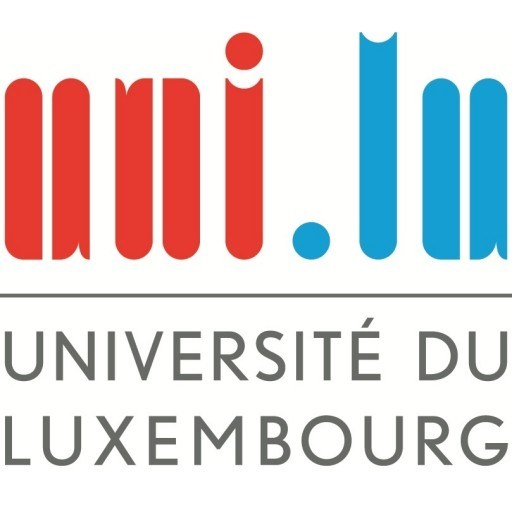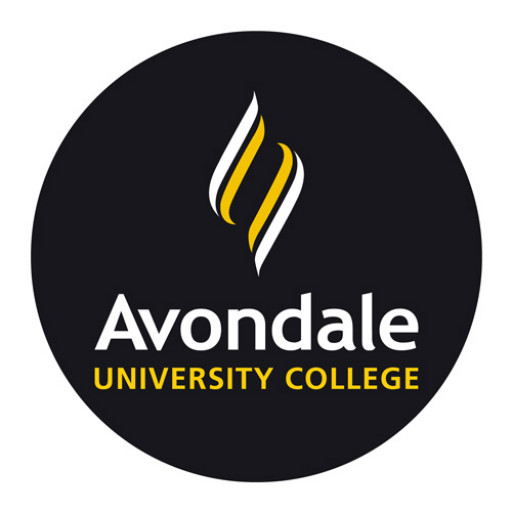Photos of university / #uni.lu
The Master in Educational Sciences at the University of Luxembourg is a comprehensive programme designed to equip students with advanced knowledge and practical skills in the field of education. This programme aims to prepare future educators, researchers, policy makers, and professionals engaged in educational development and reform. Structured to foster critical thinking, innovative teaching methods, and evidence-based decision making, the Master's programme offers a multidisciplinary approach that encompasses pedagogical theories, curriculum development, educational psychology, and the utilization of digital technologies in education.
Students will have the opportunity to explore various aspects of education across different levels and contexts, including formal schooling, lifelong learning, and informal educational settings. The curriculum emphasizes both theoretical foundations and practical applications, encouraging students to engage in research projects, internships, and collaborative initiatives with educational institutions. By integrating research skills with real-world practice, graduates will be well-prepared to confront contemporary challenges in education systems locally and globally.
The programme features a diverse faculty of experienced scholars and practitioners, providing students with mentorship and cutting-edge insights into current trends and innovations in education. Courses are delivered through a combination of lectures, seminars, workshops, and e-learning modules, offering flexibility and interactive learning opportunities suited to diverse student backgrounds. The Master's degree also promotes intercultural competence and international perspectives, aligning with Luxembourg’s multicultural environment.
Graduates of the Master in Educational Sciences will have the competence to analyze complex educational issues, develop effective strategies for improvement, and contribute to policy development and implementation at various levels. This programme paves the way for careers in educational research, teaching, administration, consultancy, and international organizations, as well as for further academic pursuits through doctoral studies. Overall, the programme is committed to fostering reflective practitioners who can make meaningful contributions to the advancement of education in a rapidly changing world.
The Master of Science in Social Sciences and Educational Sciences at the University of Luxembourg offers a comprehensive and multidisciplinary program designed to equip students with the theoretical knowledge and practical skills necessary to understand and address complex social and educational challenges. This program provides an in-depth exploration of key issues such as social inequality, educational development, policy analysis, and community engagement, preparing graduates for careers in research, policy-making, and practice within diverse social contexts.
Throughout the program, students benefit from a rigorous curriculum that combines core courses in social science theories, research methodologies, and educational perspectives with specialized modules focusing on current trends and issues in social and educational fields. Courses cover topics such as sociology, psychology, educational policy, intercultural communication, and quantitative and qualitative research techniques. The program emphasizes critical thinking, ethical considerations, and empirical analysis, fostering students' ability to design, implement, and evaluate projects aimed at social betterment and educational improvement.
Students are encouraged to develop their research competencies through hands-on projects, internships, and fieldwork opportunities, often collaborating with local communities, educational institutions, and NGOs. The program also offers seminars and workshops led by experts from academia, public institutions, and the private sector, ensuring that students gain insights into real-world applications and current debates in social and educational sciences.
The curriculum is designed to be flexible, allowing students to tailor their studies according to their interests and career aspirations. Interdisciplinary approaches are heavily promoted, combining insights from sociology, psychology, anthropology, and education sciences to foster a holistic understanding of societal issues. Graduates of this program are well-prepared to pursue doctoral studies or to enter the workforce in areas such as social research, educational administration, policy advisory, community development, and international organizations.
With a strong focus on empirical research and practical application, the Master of Science in Social Sciences and Educational Sciences at the University of Luxembourg aims to develop socially responsible professionals capable of contributing innovative solutions to societal problems. The program’s international orientation ensures that students gain a global perspective, equipping them with the skills needed to operate effectively in diverse cultural and social environments. Upon completion, graduates will be equipped to make a meaningful impact in academia, public policy, and social services, fostering positive change at local, national, and international levels.
Program requirements for the Master’s in Social Sciences and Educational Sciences at the University of Luxembourg include successful completion of a Bachelor's degree or an equivalent qualification in Social Sciences, Education, or related fields. Applicants must demonstrate proficiency in English, typically through standardized tests such as TOEFL or IELTS, unless their previous studies were conducted in English. The program may additionally require a motivation letter outlining the applicant's interest in social sciences and educational sciences, as well as previous academic and professional experience relevant to the field. Submission of a CV or resume can also be part of the application package. The university values diverse academic backgrounds, encouraging interdisciplinary approaches within social sciences and educational sciences. All documents should be submitted in the specified format and within application deadlines. Although specific work experience is not always mandatory, it can strengthen an application. The selection process involves review of academic transcripts, motivation, and other supporting documents, and may include an interview. Candidates are expected to have a critical awareness of social issues, ethical considerations, and the ability to analyze complex social phenomena. There may also be prerequisites related to specific coursework in research methods, statistics, or social theory, depending on the applicant’s educational background. Additionally, applicants may need to meet certain age and identification requirements as per university regulations. Financial aid or scholarships may be available and could have additional eligibility criteria. Prospective students are advised to consult the university's official website or admissions office for the most accurate and detailed admission criteria, application procedures, and deadlines. Overall, the program aims to select motivated individuals with a strong academic foundation, a passion for social sciences, and the potential to contribute meaningfully to the academic community and societal development.
Financing for the Master in Social Sciences and Educational Sciences at the University of Luxembourg is primarily supported through a combination of various funding sources. Students may benefit from the Luxembourg State Scholarship Programme, which provides financial aid to resident students pursuing advanced degrees. This scholarship is designed to cover tuition fees and living expenses, and eligibility is often based on academic performance and financial need. Furthermore, the university collaborates with European funding bodies such as the Erasmus+ programme, which offers mobility grants and scholarship opportunities for students participating in exchange or joint degree components of the programme.
In addition, students may secure external scholarships from national and international organizations, including Luxembourgish foundations, public institutions, and private sector grants aimed at promoting higher education and research. Students are encouraged to explore these options early and apply within specified deadlines. The university also offers information on part-time work opportunities on campus and in the local community, which can help students offset living costs while completing their studies.
For international students, financial support options may include specific scholarships offered by their home countries or through bilateral agreements. The university’s administrative offices provide detailed guidance on available funding sources, application procedures, and deadlines to assist students in planning their finances effectively.
Tuition fees for the program are relatively moderate compared to other European universities, and the university provides transparent fee structures on its official website, allowing students to plan their expenses accordingly. Financial planning should also account for accommodation, health insurance, and daily living costs, which vary depending on the student’s lifestyle and housing choice.
Overall, financing opportunities for the Master in Social Sciences and Educational Sciences at the University of Luxembourg are designed to support both resident and international students through a mix of scholarships, grants, work opportunities, and government assistance programs. Students are encouraged to actively seek out and apply for these resources to ensure smooth progress through their studies.
The Master of Science in Social and Educational Sciences at the University of Luxembourg is designed to provide students with a comprehensive understanding of social structures, educational theories, and methodologies used to analyze and address social issues. The program aims to equip students with advanced research skills, critical thinking, and practical insights relevant to the fields of social sciences and education. It prepares graduates for diverse careers in research, policy analysis, educational administration, community development, and social services.
The curriculum offers a blend of theoretical foundations and practical applications, including modules in sociology, psychology, education policy, research methods, and data analysis. Students have opportunities to engage in empirical research projects, internships, and collaborative work with local communities and organizations. The program emphasizes an interdisciplinary approach, encouraging students to examine social phenomena from multiple perspectives, fostering a nuanced understanding of complex social dynamics.
Throughout their studies, students will explore contemporary issues such as social inequality, integration, lifelong learning, and the impact of digital technologies on education and social behavior. The program also emphasizes methodological literacy, enabling students to design and conduct qualitative and quantitative research effectively. Courses are often taught by experienced faculty members who are active researchers in their fields, providing current insights and fostering an innovative learning environment.
The University of Luxembourg’s multilingual and multicultural setting enriches the educational experience, helping students develop intercultural competencies essential for working in diverse environments. The program's structure includes lectures, seminars, workshops, and research projects, which facilitate active student participation and experiential learning. Graduates of the program are well-equipped to pursue doctoral studies or enter the workforce in sectors such as public policy, education, NGOs, or international organizations.
Admission requirements typically include a relevant bachelor’s degree, proficiency in English, and motivation to work in social or educational settings. The program often spans two years of full-time study, with options for part-time study depending on the student’s circumstances. Overall, the Master of Science in Social and Educational Sciences aims to foster academically accomplished, socially responsible professionals who can contribute meaningfully to societal development and educational progress.






